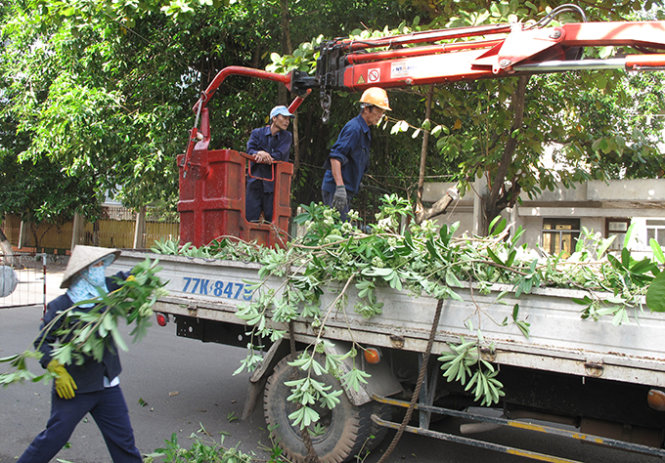A south-central Vietnamese city has decided to chop down more than 3,000 trees that produce a kind of flower known as an icon for the autumn in Hanoi, as local residents cannot stand its unpleasant odor.
The administration of Quy Nhon, the capital city of Binh Dinh Province, has grown more than 4,000 Alstonia scholaris trees, commonly called Blackboard tree or Milkwood pine, along streets citywide.
However, the flowers of those trees gave off such a strong and awful smell that authorities decided to fell down them.
“In this bloom season, the smell of the flowers is too strong and negatively affects the health of dwellers so we have to clear them off,” Do Dinh Phuong, director of the city’s urban green company, said.
The odor of the blackboard tree, also known as Indian devil tree, can make those inhaling it feel nauseous and trigger headaches.
As of Friday, there were only around 900 blackboard trees left in Quy Nhon, Phuong said.

Blackboard tree is an evergreen, tropical tree native to the Indian subcontinent and Southeast Asia, which can also be found growing in Australia, India, Sri Lanka, Malaysia, Myanmar, the Philippines, Thailand, and southern China, according to CNN.
It has tubular, cream white flowers that are extremely fragrant, which are in Vietnam called hoa sua, literally translated as milky flower.
The ‘milky flower’ is considered a symbol of the autumn in Hanoi and is the source of inspiration for thousands of songs, poems, paintings and other art works by local artists.
But it seems that the flower is only embraced in the capital city.
In responding to the tree cutting plan in Binh Dinh, many readers have told Tuoi Tre (Youth) newspaper they supported chopping those awful-smelling plants, and recounted their bad experience with the vile odor.
Besides the smell, the trees usually attract a number of worms, according to the readers.
People in other provinces such as Kon Tum in the Central Highlands, Phu Yen in the south-central region, and the southern city of Can Tho said the blackboard trees are also being grown in their localities, apparently implying that they wish a similar cutting plan will be implemented there.
Hanoi people say the smell of hoa sua should only be enjoyed from afar and during the cold weather typical for Hanoi, not Binh Dinh and other central localities, where the weather tends to be hotter and more humid.
Like us on Facebook or follow us on Twitter to get the latest news about Vietnam!























































